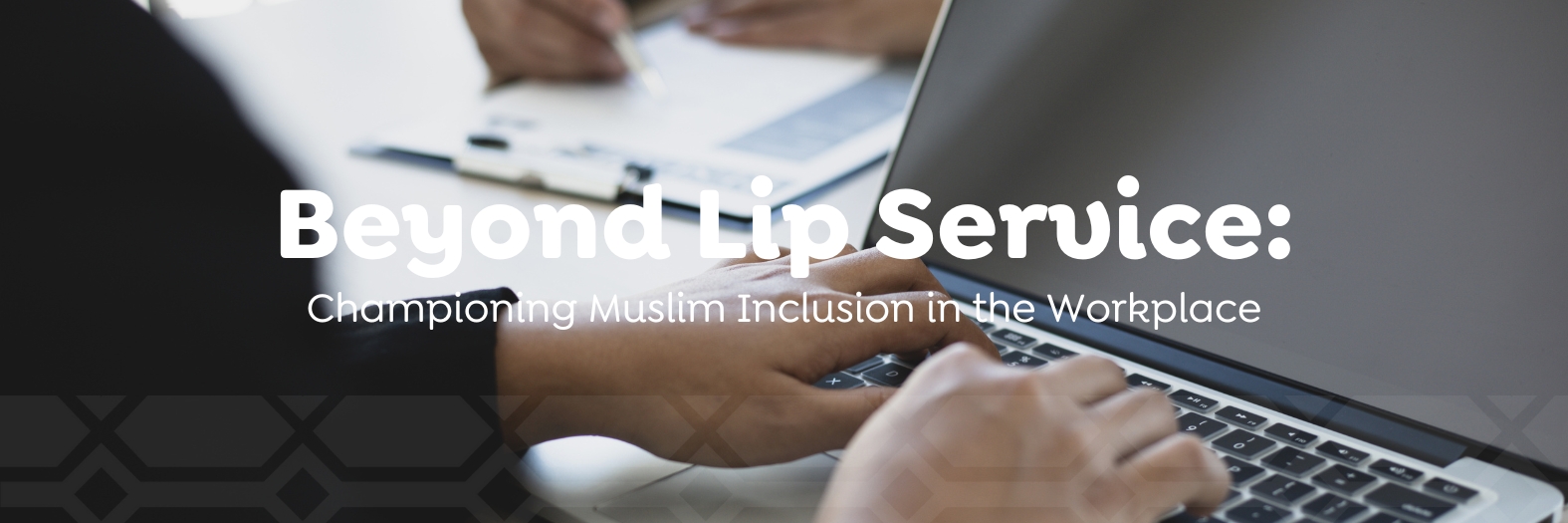The recent Islamophobic riots and racist thuggery that gripped the UK shed a spotlight on the misconceptions and prejudices that still exist for minority communities and Muslims. This was a good opportunity for employers to show solidarity with employees who felt rightfully shaken by the violent unrest and emphasise their commitment to tolerance and multicultural openness.
The spotlight on D&I practices was arguably catapulted into the limelight during the summer of 2020, after the murder of George Floyd, and the level of civil unrest and protests that erupted thereafter. Many communities expressed their frustration at the level of ethnic disparities, injustices and disadvantages that were caused by systemic imbalances and racial biases.
In 2022, following this paradigm shift, the UK government published its Inclusive Britain strategy response where it set out 74 action points to address ethnic disparities. One of which included the set up of the Inclusion at Work Panel in June 2023 in order to aid employers in driving fairer practices in the workplace. The panel convened experts and leaders from both the private and public sphere including a leading Harvard academic, with the sole objective of “tackling bias, ensuring fairness and promoting inclusive workplaces”.
On 20th March 2024, the Inclusion at Work Panel published its report for improving diversity and inclusion (D&I) practice in the workplace. The findings emphasised the need to avoid “homogeneity” in an organisation as it breeds “groupthink” and prevents creativity which is fundamental to competitive environments.
But what does successful Muslim inclusion look like? How can employers help?
Muslim inclusion, much like the inclusion of any other faith group, is and will continue to be important in the wider conversation about what effective inclusion looks like. Why? Firstly, Muslim communities are heterogeneous meaning they are multi-faceted and span different neuro, racial, socio-economic spectrum’s (as demonstrated by in-depth analysis by the Muslim Council of Britain (MCB)). Secondly, a study conducted by Samir Sweida-Metwally at the University of Bristol found that Muslim professionals still experience what has been labelled as the “Muslim penalty” whereby Muslims face challenges in the labour market due to prejudice and discriminatory perceptions, and not because of their “socio-cultural attitudes”.
Many experts have done a lot of work in this area and here are the key ingredients that will be needed to ensure Muslim inclusion is both authentic and effective.
A data-centric approach
Quite surprisingly, as demonstrated by the CIPD’s Inclusion at Work 2022 report, only 38% of employers actually obtain data pertaining to equal opportunities monitoring from employees or job applicants. This was revealed in a survey with 2,000 senior-decision makers in the UK. As echoed in the first and third criteria for D&I success by the Inclusion at Work Panel report findings in March 2024, an evidence-based approach is imperative. Organisations should gather data and D&I metrics to address context-specific problems within their company. Qualitative and quantitative data is important and employers should use the same approach to address Muslim inclusion within their organisation. Surveys, employee feedback reports, workshop sessions and interviews are useful for qualitative information gathering, and data on Muslim employee recruitment and retention can also aid conversations about Muslim inclusion.
Qualitative and quantitative data can therefore be used by employers to set aspirational targets for recruitment, retention, progression and promotion, and understand the context-specific policies and cultural behaviours that can make a workplace more welcoming to Muslim (and other diverse) employees.
Widening diversity of thought
Many D&I experts emphasise the importance of diversity of thought and lived experiences. Research conducted by Deloitte concluded that high-performing teams are “cognitively and demographically diverse” where cognitive diversity was defined as relating to both “educational” and “functionality” aspects such as, for example, an individual’s problem-solving style or approach. On the reverse, evidence suggests that lack of diversity of thought is a significant barrier to inclusion whereby some groups are discriminated against for not aligning with a dominant culture.
As a faith group, Muslims are varied in their experiences and thinking. They are not a homogenous group by any means, and definitely do not align with the secular dominant culture. This should be seen as a strength as it reflects the cognitive diversity that results in high performance, critical thinking and innovation (as demonstrated by studies in the Harvard Business Review).
Challenging faith-based stereotypes
The organic growth of Muslim-led networks and platforms (such as Amaliah which in and of itself is an important beacon for female Muslim inclusion) play an important role in challenging faith-based stereotypes and challenging anti-Muslim bias. Experts from Muslim Mind Collaborative reveal the damaging impact of cultural and religious stereotypes in contributing to the spread of misinformation and judgement in the workplace, causing subtle division.
One easy win for any employer is to look for meaningful Muslim inclusion initiatives. One such initiative making headways in advancing Muslim inclusion in the workplace is the Muslim Employment Charter (MEC). MEC aims to help Muslim professionals juggling their career and faith obligations through a simple 3-pillar charter, based on extensive research, that addresses the most common shared workplace shortfalls Muslim professionals face.
Waqas Hussain, co-founder of MEC, explains what it offers to employers and its key objectives. He explains how it “targets three main areas to boost inclusion for Muslim professionals: the provision of workplace facilities (such as prayer rooms and Wudufacilities), the development of social and networking policies (less alcohol-centric events and venues), and commitments to training and knowledge (to bridge any knowledge gaps). Employers who partner with MEC commit to implementing the charter into their organisation.”
When sharing his recommendations for how employers can enhance Muslim inclusion in the workplace in meaningful ways, he notes: “The most important step toward Muslim inclusion is for employers to bridge the knowledge gap regarding their understanding of how Islamic obligations and values translate into the working lives of Muslim colleagues. This means going beyond assumptions and directly engaging with Muslim employees through meaningful conversations, workshops, or webinars. By fostering a deeper understanding of faith-based needs, employers can create policies and practices that are genuinely inclusive. This could include providing prayer spaces, offering flexible work schedules during Ramadan, and rethinking social events to be less alcohol centric.”
The key point here is that organisations should adopt multi-faceted approaches to ensure their efforts for greater Muslim inclusion are authentic. By committing to meaningful Muslim-related workplace initiatives, employers send a clear signal that they mean business and are unafraid to go beyond lip service or shop-window dressing to accommodate Muslim employee needs.
Much like any other underrepresented group, Muslim professionals should feel adequately supported in their workplace environments, particularly as many employers seek to retain and access a wider pool of talent.
Najat is a business development manager at an international law firm and a part-time writer. She graduated with an LLB (Bachelor of Laws) degree from SOAS, University of London and previously worked as a paralegal for a trade association before transitioning to a business services role in the city. Her interests pertain to the socio-cultural issues impacting Muslim women in the UK and the importance of media representation in advancing diverse and inclusive narratives. She is also a dedicated volunteer of Islamic Centre of Britain. IG: @Najat_Writes





